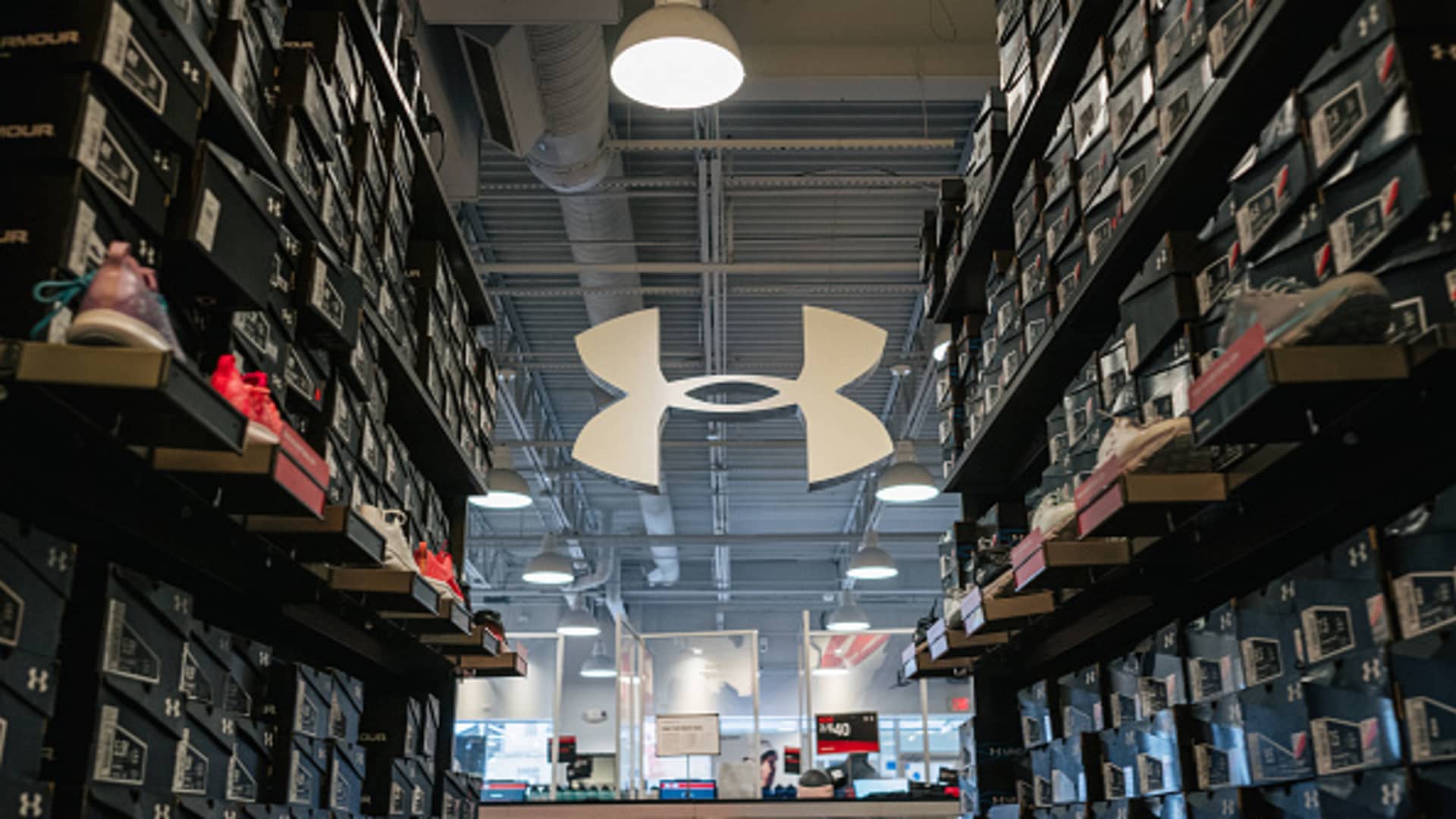The interior of an Under Armour store is seen on November 03, 2021 in Houston, Texas.
Brandon Bell | Getty Images
Under Armour said Thursday that its holiday-quarter sales slowed, but its earnings beat estimates as the athletic apparel retailer worked to rein in costs.
Soft demand in North America and a slowdown in wholesale orders led revenue to drop 6% during the period, but the company posted big gains in its gross margin.
Under Armour now anticipates full-year sales will decline slightly more than it previously expected. Even so, it raised its expectations for full-year gross margin and earnings just weeks away from the end of its fiscal year.
Shares rose about 6% in premarket trading.
Here’s how Under Armour did in its third fiscal quarter compared with what Wall Street was anticipating, based on a survey of analysts by LSEG, formerly known as Refinitiv:
- Earnings per share: 19 cents adjusted vs. 11 cents expected
- Revenue: $1.49 billion vs. $1.50 billion expected
The company’s reported net income for the three-month period that ended December 31 was $114.1 million, or 26 cents per share, compared with $121.6 million, or 27 cents per share, a year earlier. Excluding one-time items related to the sale of its MyFitnessPal platform, tax impacts and litigation reserves, Under Armour’s adjusted net income was about $84 million, or 19 cents per share.
For the full fiscal year, which is expected to conclude at the end of March, Under Armour is expecting sales to fall by 3% to 4%, compared to its previous expectation of down 2% to 4%. Wall Street had expected sales to drop 2.8%, according to LSEG.
The retailer is expecting to bring in earnings per share of 57 cents to 59 cents, up from a previous range of 47 cents to 51 cents. It anticipates it will post adjusted earnings per share of 50 cents to 52 cents.
Wall Street had expected earnings of 49 cents per share, according to LSEG.
During the quarter, Under Armour saw its gross margin jump by 1 percentage point to 45.2%, driven by lower freight expenses and partially offset by increased promotions and sales to off-price channels. For the full year, the company is now expecting its gross margin to be up by 1.2 to 1.3 percentage points, compared to a prior expectation of 1 to 1.25 percentage points.
“Despite a mixed retail environment during the holiday season, our third quarter revenue results were in line with our expectations; we were able to deliver better than anticipated profitability and remain on track to achieve our full-year outlook,” Under Armour CEO Stephanie Linnartz said in a statement. “As we close out fiscal 2024 and our strengthened leadership team begins to come up to speed in the quarters ahead – we are working to reset Under Armour toward a path of improved revenue growth and enhanced value creation in the future.”
During the quarter, Under Armour’s wholesale revenue, which accounts for about 60% of sales, dropped 13% to $712 million. Partners like Dick’s Sporting Goods, Kohl’s and JD Sports pulled back on orders as they grapple with their own demand and inventory challenges. It’s a theme across the apparel sector as wholesalers looked to tighten their order books in an uncertain economy.
Like its peers, Under Armour has been working to expand its sales directly to consumers through its stores and website. During the quarter, Under Armour saw those direct sales rise 4% to $741 million, driven by a 5% uptick in store revenue and a 2% jump in digital sales.
Read the full earnings release here.
This story originally appeared on CNBC

